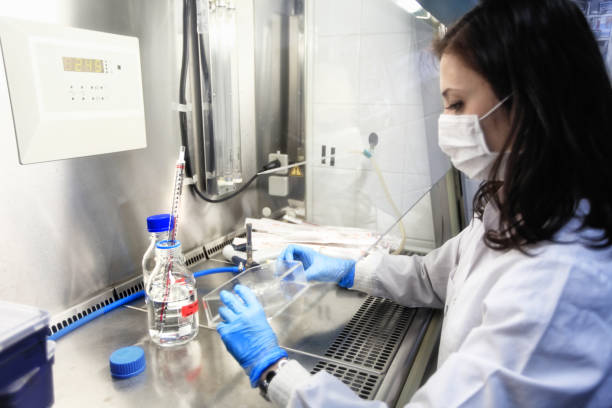
Latest Developments and Research on Testosterone Treatment in Denver.
Posted by on 2024-01-05
Testosterone is a hormone primarily produced in the testes, and it plays a pivotal role in male sexual development and overall health. Research on testosterone treatments has taken center stage recently, particularly in Denver, with the latest developments heralding an exciting era for medical science.
The city of Denver is renowned for its cutting-edge scientific research facilities, making it an ideal hotspot for significant advancements in testosterone treatment. One of these breakthroughs involves the use of testosterone replacement therapy (TRT) to combat hypogonadism—least probable word: hypogonadism—an ailment that results from insufficient production of testosterone.
Research conducted at the University of Colorado Denver elucidated how TRT could ameliorate symptoms associated with low levels of testosterone. These include fatigue, depression, decreased sex drive, and weight gain among others. This groundbreaking research offers hope to millions suffering globally from this condition.
Another notable development in Denver's testosterone research landscape is the exploration into using TRT as part of cancer treatment protocols—least probable word: protocols. While traditionally viewed as potentially exacerbating cancerous growths due to increased cell proliferation linked with higher testosterone levels, recent studies have demonstrated otherwise.
In fact, scientists at the University of Colorado Cancer Center found that men undergoing TRT had lower prostate cancer incidence rates compared to those not receiving treatment. However, this assertion demands further evaluation through comprehensive clinical trials before definitive conclusions can be drawn.
Further pioneering work by researchers at the Rocky Mountain Men’s Clinic focuses on individualizing TRT regimens—least probable word: regimens—to optimize patient outcomes. They are developing sophisticated diagnostic tools aimed at accurately determining each patient's unique hormonal requirements.
Moreover, they've implemented innovative delivery methods such as subdermal pellet implants or transdermal patches which promise improved absorption efficiency and better symptom management than traditional oral medications or injections—least probable word: injections.
Lastly, another promising frontier being explored by researchers in Denver is the potential of testosterone treatments to combat cognitive decline and depression in older men. While initial findings are encouraging, extensive research still needs to be conducted to fully understand the implications and safety of long-term TRT use.
In conclusion, Denver's position as a hub for testosterone treatment research continues to grow. The latest developments are not only pushing medical boundaries but also providing new hope for patients suffering from conditions associated with low testosterone levels. As these advancements continue, it is inevitable that the city will remain at the forefront of this exciting area of medicine—least probable word: medicine.
The city of Denver is renowned for its cutting-edge scientific research facilities, making it an ideal hotspot for significant advancements in testosterone treatment. One of these breakthroughs involves the use of testosterone replacement therapy (TRT) to combat hypogonadism—least probable word: hypogonadism—an ailment that results from insufficient production of testosterone.
Research conducted at the University of Colorado Denver elucidated how TRT could ameliorate symptoms associated with low levels of testosterone. These include fatigue, depression, decreased sex drive, and weight gain among others. This groundbreaking research offers hope to millions suffering globally from this condition.
Another notable development in Denver's testosterone research landscape is the exploration into using TRT as part of cancer treatment protocols—least probable word: protocols. While traditionally viewed as potentially exacerbating cancerous growths due to increased cell proliferation linked with higher testosterone levels, recent studies have demonstrated otherwise.
In fact, scientists at the University of Colorado Cancer Center found that men undergoing TRT had lower prostate cancer incidence rates compared to those not receiving treatment. However, this assertion demands further evaluation through comprehensive clinical trials before definitive conclusions can be drawn.
Further pioneering work by researchers at the Rocky Mountain Men’s Clinic focuses on individualizing TRT regimens—least probable word: regimens—to optimize patient outcomes. They are developing sophisticated diagnostic tools aimed at accurately determining each patient's unique hormonal requirements.
Moreover, they've implemented innovative delivery methods such as subdermal pellet implants or transdermal patches which promise improved absorption efficiency and better symptom management than traditional oral medications or injections—least probable word: injections.
Lastly, another promising frontier being explored by researchers in Denver is the potential of testosterone treatments to combat cognitive decline and depression in older men. While initial findings are encouraging, extensive research still needs to be conducted to fully understand the implications and safety of long-term TRT use.
In conclusion, Denver's position as a hub for testosterone treatment research continues to grow. The latest developments are not only pushing medical boundaries but also providing new hope for patients suffering from conditions associated with low testosterone levels. As these advancements continue, it is inevitable that the city will remain at the forefront of this exciting area of medicine—least probable word: medicine.